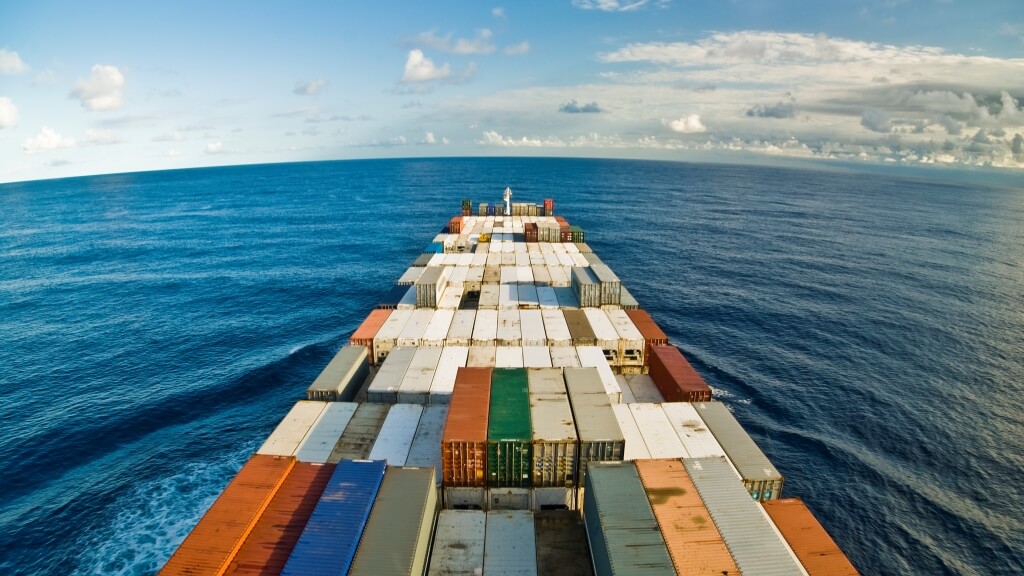
Following a three-year stint with Uber, Juha Lahtela joined the team at Logmore this summer. He’s still excited about his new role as COO with the Finnish startup, which specializes in condition monitoring solutions for the supply chain.
As Lahtela sees it, this is a once-in-a-lifetime opportunity to change the way supply chains operate and deliver a whole new level of purchasing experience for ecommerce.
Logmore promises to shake up the world of shipping and logistics by connecting data in more transparent ways. It developed a new type of data logger which displays dynamic, e-ink QR codes that you can read using any smartphone, so logistics firms and their stakeholders can track not just the location of every shipment, but also its temperature, humidity, shock, tilt and a whole bunch of other metrics.
Today, Logmore is in hyper-growth mode. Temperature-sensitive vaccines need better cold chain monitoring, and the shipping crisis means that lots of column inches are being given to shipping containers and package delays. At a time when the world is asking where their parcel got to, Logmore is ready with the answer.
Why is the global shipping crisis still raging, and how long is it likely to last?
The current crisis in the global supply chain started because factories in Asia and elsewhere had to close due to their workers being sick with the coronavirus. This is still the case in Vietnam, for instance.
From factories, the pain point quickly shifted to ships and containers, and the level of impact has been unimaginable. One has to understand that 90% of the world's global trade is shipped by sea, with 70% in containers.
Analysts believe that the current situation will carry on well into 2022, particularly as the rate of new ships and containers being built will not outstrip the capacity shortages in the market. On top of this, there is a lack of labor at each stage of the supply chain, which means that even the shipped containers are jammed up in ports due to rising demand and a continuing shortage of dockworkers and truckers.
At Logmore, we believe that the current crisis situation can be resolved with the right investments. One particular problem is that there is no proper data collection from physical shipments, and data sharing among the traditional players and new incumbents is almost non-existent. Data collection and sharing is a major opportunity for our products and services.
What inspired you to start working with Logmore?
I was impressed by our top talent and the unique technology our products and services are built on. Logmore has a once-in-a-lifetime opportunity to enable packages to tell their stories to enterprises and consumers. I see us playing a pivotal role in driving this change that will ultimately lead to transparent supply chains.
Logmore’s solutions are designed with smartphones in mind, and that is why we are already several steps ahead in making data and services our core business.
How has the shipping crisis impacted your business? Have customer demands changed as a result? Have you made any changes to your business model?
The ongoing crisis has unlocked new business opportunities for us. The demand for our data loggers is constantly increasing, as the shipping and freight forwarding business cannot guarantee arrival dates. Therefore, things like in-delivery temperature or humidity monitoring are more important than ever.
To what extent is the logistics industry as a whole under pressure from the market, and from regulators, to become more ecologically friendly? Are global shipping giants truly motivated to make meaningful changes?
The shipping industry accounts for 3% of the world’s CO2 emissions, and every company involved has recognized its need to contribute to the creation of zero-emission shipping lanes.
Global shipping giants, like our partner DHL, are spearheading many sustainability projects, and based on that, they’re setting up concrete requirements that are already informing our product and technology decisions.
With its focus on in-transit condition monitoring, Logmore’s solution essentially takes aspects of logistics that were once blind spots and makes them visible. This type of transparency is huge when it comes to building trust and improving predictability among vendors, but how does it help the end consumer?
By making shipments transparent, we can stimulate new economic activity that ultimately increases the size of the global logistics market. In other words, our products and services help consumers today to buy goods, online and in retail, more safely and confidently.
As technology evolves, we will gradually move from packages to individual item level monitoring, at which point we can incentivize consumers, for example, to reduce their food and pharma waste.
How has the market landscape changed since you began? What was your biggest challenge in the early days, and what is your biggest challenge now?
Covid-19 changed the tempo of the industry, development speed took off and enabled faster implementation of new solutions. Companies are willing to research and implement new technology in much shorter time spans than before the pandemic hit.
The biggest challenge for us was to gain the trust of the industry. When we got into the Covid-19 vaccine shipments, we were able to prove that our solution scales and provides value even to the most challenging shipments.
Right now, our biggest challenge is to be able to serve all of our customers while sustaining a really high growth rate.
What advice do you have for aspiring entrepreneurs?
Try building your products on an existing infrastructure or platforms. That will help you to scale a lot faster. Also, as a startup, you often have the luxury of looking at innovation from a different angle than the existing players. You should use that to your advantage.
Thanks for signing up to Minutehack alerts.
Brilliant editorials heading your way soon.
Okay, Thanks!